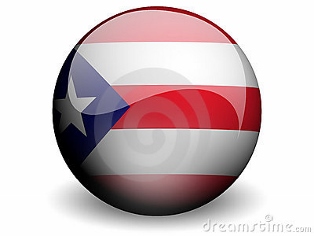|
Florida Puerto Ricans Have Stake in Immigration Debate  December 12, 2013 | WMFE--The House of Representatives adjourns for the year tomorrow without taking up the Senate immigration bill or its own version. Puerto Ricans are promising a response in the next election, but some might actually suffer if immigration reform passes. [Photo courtesty of dreamstime.com] Mayra Ramos Miró is the communications director at the Orlando campus of Ana G. Mendez university system. When she moved from Puerto Rico to Florida 25 years ago, she barely spoke any English. She took a job with Disney, which recruits from the island to serve Hispanic tourists and has helped make Central Florida a Puerto Rican hub. Ramos Miró says Puerto Rican workers benefit from Florida’s job opportunities and quality of life, and employers benefit – from them. "Hispanics spend about $1 trillion. That’s their buying power," she says. "So, it's in the best interest of companies to have people that are fluent in the language, who can speak not only the language, but who can speak also to the soul." Ana G. Mendez University aims to feed that reciprocity. It’s fully bilingual, as Professor Ricardo Serrano explains: "If you teach a five-week course, probably the first workshop will be in the English, and the second in Spanish, and alternating." He says the workforce the school provides the community is evidence the system works. Puerto Ricans in Florida The Pew Research Center reports more than 800,000 Puerto Ricans like those of Ana G. Mendez reside in Florida, and most live near Orlando. Other employers have followed Disney’s model of holding job fairs in Puerto Rico. They hire from the island because Puerto Ricans speak Spanish and can work legally in the U.S. If immigration reform passes, low-wage Puerto Rican workers could lose that edge. Losing Their Edge "Given that Puerto Ricans do have a tendency to be concentrated in those sectors, that is concerning on some levels," says Dr. Anne Visser, who studies the Puerto Rican labor market at U.C. Davis. She says non-U.S. citizens who want, say, university positions, probably already qualify for visas. So, she says the Puerto Ricans who could have a harder time job searching in a larger labor pool are those in service and tourism industries – like Ramos Miró when she first immigrated. The problem with that, Visser says is how employers might respond. She explains, "The business of a business is to make money. What has happened over the last few years is costs have shifted to workers. And so, if you do have an increased population pool – and this is what we’ve seen in a general trend in the recession, right? – people spent one to two years unemployed suddenly took a job at much less of pay because, 'I need a job.'” That said, Visser supports immigration reform. She says the benefits of decreased discrimination and exploitation outweigh any drawbacks. Still Supporting Reform Lydia Medrano agrees. She acknowledges immigration reform could increase job competition for people from her native Puerto Rico. But, she advocates for it as the Florida leader of the nation’s largest Hispanic lobbying group, the League of United Latin American Citizens. She says, "We don’t discriminate, let’s put it this way. I am Puerto Rican, and I know many Puerto Ricans, and I don’t know one that is against the passing of an immigration reform." Among Puerto Ricans who still live on the island, a poll from the research firm Ipsos shows almost half have considered leaving, many to compete for jobs in the continental U.S. But, says Puerto Rican Senate President Eduardo Bhatia, people from his home largely support immigration reform. "We see our brothers and sisters from Mexico, our brothers and sisters from Nicaragua or Honduras or anywhere else in South American, and Puerto Ricans, even though there’s a slight cultural difference, they realize that there’s absolutely no reason why you have to stop being who you are in order to be a great American," Bhatia says, "So, I think it’s more an empathy. It’s an understanding of who they are." In fact, Puerto Ricans who opposes immigration reform seem hard to find, even among those who acknowledge its impact on the labor market. The power in that viewpoint is that, as U.S. citizens, Puerto Ricans can vote. |
|
|